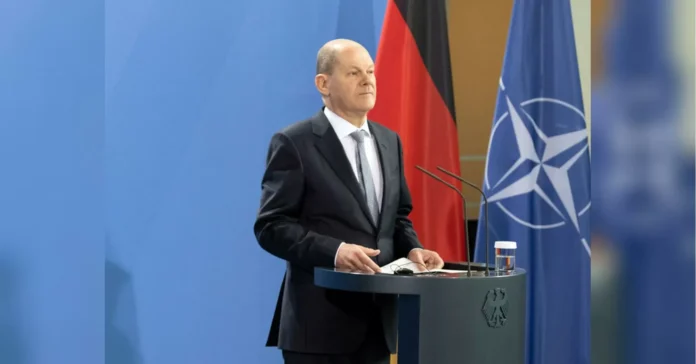As the relationship between Germany and Russia continues to evolve, Chancellor Angela Merkel has made it clear that she is open to the possibility of future negotiations with Russian President Vladimir Putin. In a recent interview with German newspaper Süddeutsche Zeitung, Merkel stated that she does not rule out talks with Putin «when the time comes.»
This statement comes as a surprise to many, as Merkel has been a vocal critic of Putin’s actions in recent years. From the annexation of Crimea to the ongoing conflict in Ukraine, Germany has been a strong supporter of sanctions against Russia. However, Merkel’s willingness to engage in dialogue with Putin shows a shift in her approach towards Russia.
The Chancellor’s statement also comes at a time when tensions between Russia and the West are at an all-time high. The poisoning of former Russian spy Sergei Skripal in the UK and the subsequent diplomatic expulsions have only added to the already strained relationship between Russia and the West. In this context, Merkel’s openness to negotiations with Putin is a bold move that could potentially lead to a breakthrough in the strained relations between the two countries.
Merkel’s statement has been met with mixed reactions in Germany. Some see it as a pragmatic approach, acknowledging the need for dialogue with Russia in order to address important global issues such as the conflict in Syria and the Iran nuclear deal. Others, however, view it as a betrayal of Germany’s commitment to standing firm against Russian aggression.
Despite the criticism, Merkel’s stance is in line with her long-standing approach to foreign policy. She has always emphasized the importance of dialogue and diplomacy in resolving conflicts, even with countries that have vastly different ideologies and values. In the past, she has successfully used this approach in dealing with other world leaders, such as Turkish President Recep Tayyip Erdogan.
Moreover, Merkel’s statement should not be seen as a sign of weakness or appeasement towards Putin. In fact, it is a strategic move that could potentially benefit Germany and the rest of Europe. By keeping the lines of communication open, Merkel is ensuring that Germany’s interests are represented and protected in any future negotiations with Russia.
It is also worth noting that Merkel’s statement does not mean that Germany will abandon its stance on sanctions against Russia. The Chancellor has made it clear that any talks with Putin will only happen when the time is right and when there is progress on important issues such as the implementation of the Minsk agreements in Ukraine.
In the meantime, Germany will continue to work closely with its European partners and the United States to maintain a united front against Russian aggression. Merkel’s statement should not be seen as a shift in Germany’s foreign policy, but rather as a pragmatic approach to dealing with a complex and challenging relationship.
In conclusion, Chancellor Merkel’s openness to negotiations with Putin is a bold and strategic move that could potentially lead to a breakthrough in the strained relations between Germany and Russia. It is a testament to her commitment to dialogue and diplomacy in resolving conflicts and protecting Germany’s interests. While there may be criticism and skepticism, it is important to remember that this statement does not signify a change in Germany’s stance on sanctions against Russia. Only time will tell if and when negotiations between Germany and Russia will take place, but for now, Merkel’s statement offers a glimmer of hope for a more positive future between the two countries.

